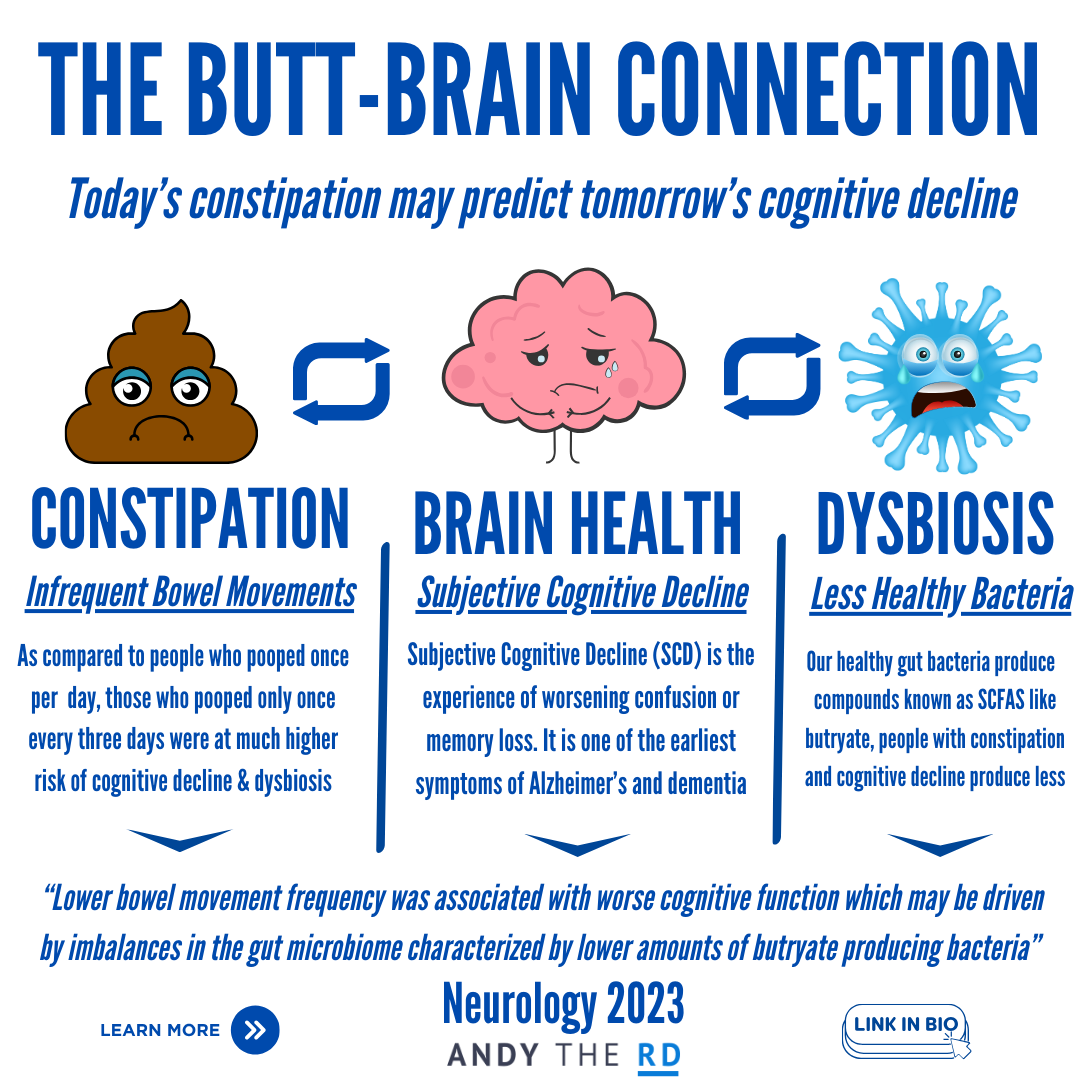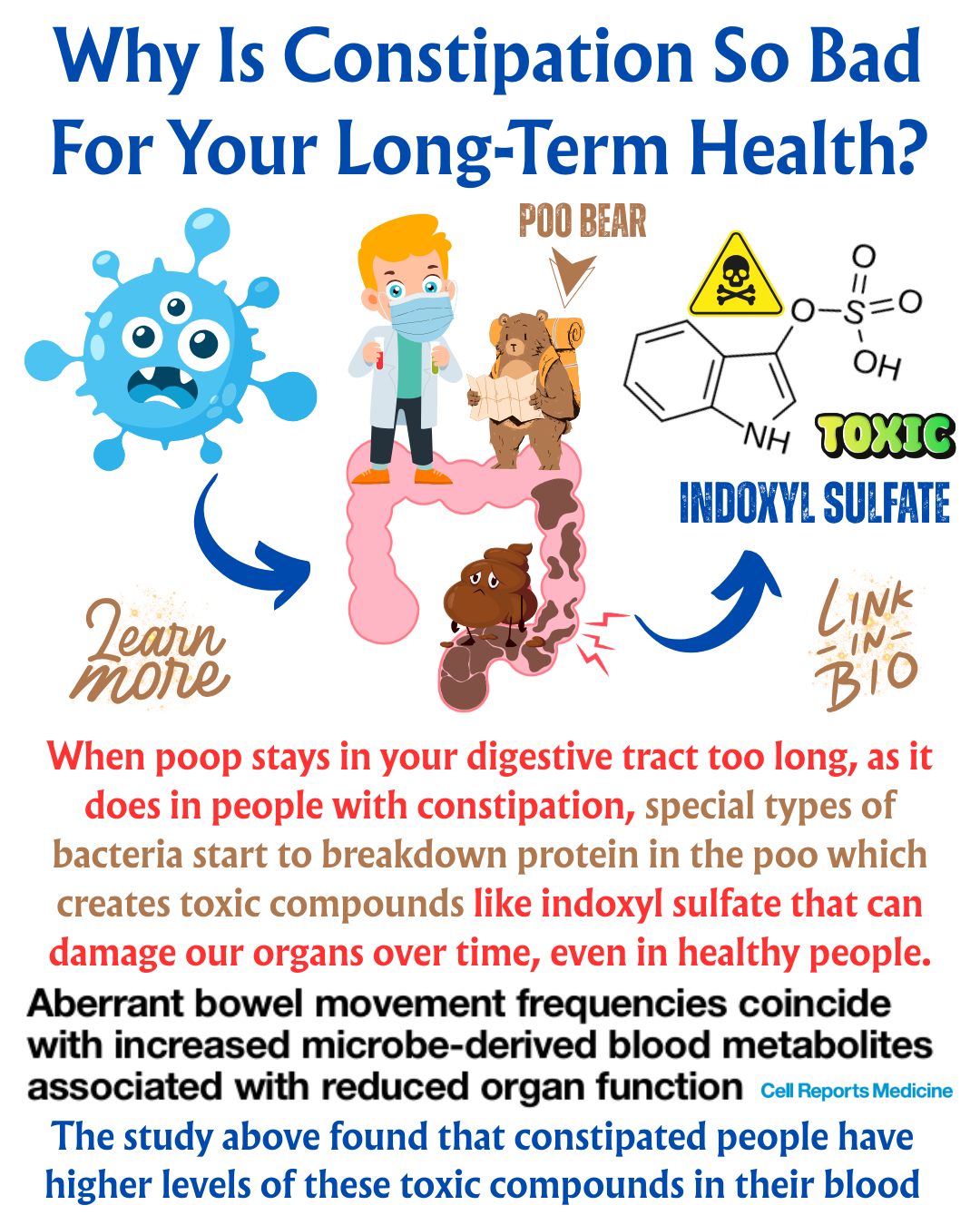Officially a 11x published author with countless blog posts on the most salient nutrition topics of our time, I finally confront my biggest literary challenge.
Talking crap.
Today’s post will take you on a journey to a more robust understanding of how often you should strive to defecate.
Let’s roll.

How Often Do Most People Poop?
Let me start by taking it way back to a study out of the aptly named Gut journal from 1992
The study made some interesting observations:
i. Once daily was the most commonly identified pattern – but less than half of people go once a day
ii. Less than 10% of people went 2+ times per day
iii. Most people go early in the day
So from this particular study we learn that while there are patterns present, there is also quite a bit of variety in bowel movement frequency.
Let’s now jump to a 2010 study out of the Scandinavian Journal Of Gastroenterology
This particular study found that:
i. Nearly 100% of people pooped between 3 times per day and 3 times per week
ii. 3 in 4 poops were considered “normal” – not too hard, not too loose
iii. Urgent, strained or incomplete poops were reported in close to 50% of people
A 2010 study from the Singapore Medical Journal actually supported both the claims from the first study I cited that that going once a day was most common AND from the second study I cited that most people poop between 3 times a day and 3 times per week.
So now that we have aptly addressed the question of how often most people poop, we must proceed to determine if the people on the more frequent end of the spectrum have advantages ( beyond the obvious, duh!) over people from the least frequent end of the spectrum.
Let’s take a look at some of the observational evidence in this category.
Poop Frequency & Your Health
Keep in mind that the associations that I present in this section are purely observational and suggest correlation rather than causation.
Despite variance from person to person, I think it’s fair to say that regularity in bowel movements are on some level indicative of a strong dietary pattern and good GI health.
With that in mind, infrequent bowel movements have been identified as being correlated with an increased risk of a number of health conditions.
A 2011 paper from the American Journal Of Epidemiology found, for example, that populations with less frequent bowel movements were at higher risk of Parkinson’s disease.
A 2016 paper out of Atherosclerosis found that, in a Japanese population, lower poop frequency was associated with increased risk of cardiovascular disease.
When exploring potential explanations for this association, I discovered a 2016 paper which suggest that constipation may increase oxidative stress on the body and thus contribute to an increased risk of death and disease.
Finally, recently published data suggests that people who poop 7x weekly normally had better long-term health than people who pooped 4x a week abnormally (soft stools).
Both the quality and the quantity matters, and I can help you improve both.

Want To Poop More? I Can Help
In otherwise healthy people, as the quality of the diet goes up – so too does the quality and consistency of their bowel movements.

For some individuals, including those with IBS, there is more nuance involved but for an otherwise healthy client it is almost always the case that between the first and second meeting I’m informed without even asking that bowel regularity and quality has noticeably improved.
This is one of the innumerable benefits of receiving truly customized nutrition guidance.
And so while I cannot tell you how many times a day YOU personally should be pooping in this post, if you fall well outside the normal ranges discussed in today’s article you may want to consider custom – so don’t hesitate to reach out.
Until your next poop,
Andy De Santis RD MPH







